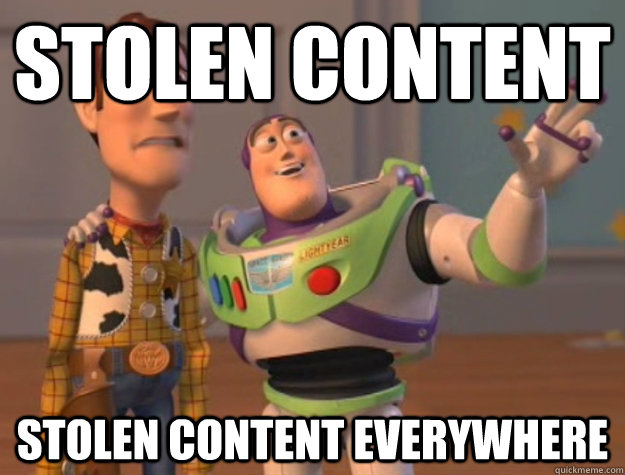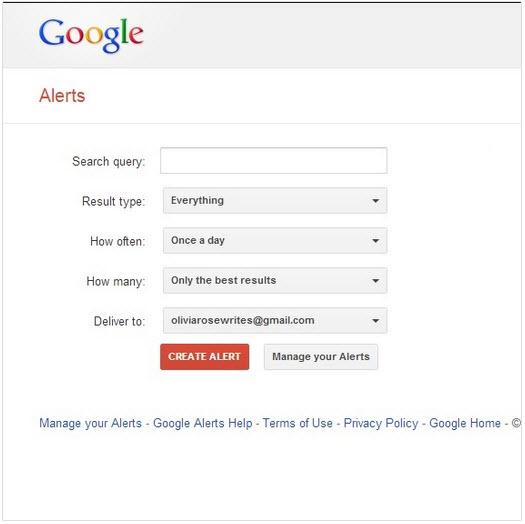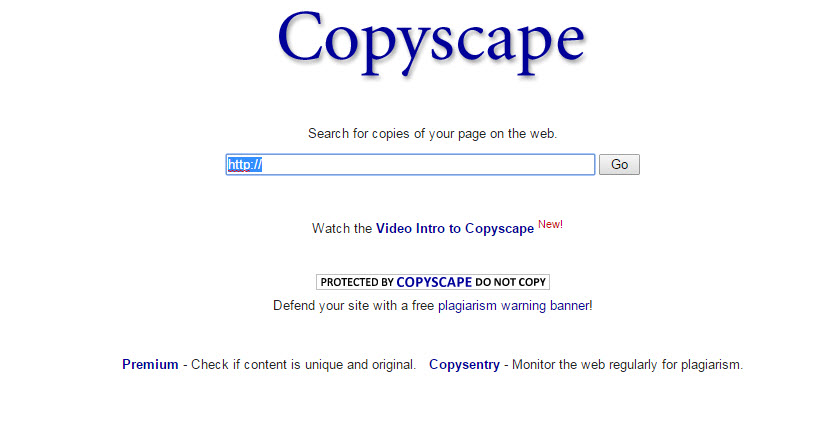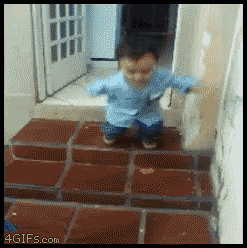Stolen Content is a One-Strike Offense

Stolen content is as low as it gets.
To flat out steal someone else’s work and claim it as your own is beyond the pale. To be that unethical and immoral … there’s no going back from that.
The people who steal content should get a Scarlet Letter and never be allowed to work in Internet marketing ever again. There is no room for that kind of behavior in this industry and should not be tolerated. People need to take a stand.
It’s hard to police the Internet. You climb a slippery slope when you try to do so.
What is allowed and what isn’t? Who sets the rules?

The power the Internet possesses is enormous and we haven’t seen the full scope of what is possible yet.
But there are some practices you have to take a stand against. Stealing content is one of those. This can’t be stated enough: If you are caught doing this, you should never get the chance to work in the industry ever again.
Sound harsh? The people who do this and are caught should have thought about that before they stole someone else’s work and tried to make a profit off of it. In any other business that’s stealing and is against the law.
If you get the impression I’m fired up, good. I have no sympathy for people who do this. They are a plague on this industry. They give the company I work for and me a bad reputation.
I take pride in what I do. I work hard to be the best writer I can and create the best stories for the clients that we represent. I also know I’m not smart enough to know everything, so I will have to use other sources to back up what is said to give it more credibility. That’s why I give everyone I use in my stories a link since I’m not cheap and stingy – but that’s a topic for another day.
If you’re too lazy or not good enough to create your own content, do us all a favor and get out of the business. There’s no place for those tactics in SEO or Internet marketing any longer. And, hopefully, we’re on the path to get rid of all of them.

Don’t think this happens that frequently?
If you publish content online, you have or will face this problem. And it will affect your rankings and results in search in the process. One of the aspects that Panda looks for is duplicate content. In some cases, the original provider of that content is outranked by the site who stole it. If you feel you have been hit by Panda, duplicate content maybe the reason why.
Aside from it being unethical, immoral and in violation of the Digital Millennium Copyright Act, that’s why this is so important.
What can you do?
Before you do anything, you must be prepared. Have a plan in place as to what you should do and how to go about doing it. That means you put in the work before your content is stolen so you know what approach to take if and when it does.
As Hubspot notes, you need to know whether your content has been stolen, have a good understanding of the laws and if it’s worth your time to pursue. No matter how big or small the piece you wrote, you need to pursue it and do whatever is possible to get those people punished and out of Internet marketing for good.
But that’s the just the beginning of what you need to and should do.
You have to know how to get them to take down your stolen content and how to ensure it never happens again.
This is another good piece to figure out what you should do when someone steals your content. It lays out five steps on what to do about Internet thievery.

Search Engine Land also lays out how to recover your stolen content and what to do.
The first step is to find if your content has been stolen. You can do that through Google Alerts or through Copyscrape’s Web search.
If you use the Copyscrape approach, as the piece from Search Engine Land says, copy a few lines of text from the page your content is on and do an exact match search in Google by putting it in quotes. If there are pages other than your own that appear with the exact match content, use Copyscrape to find out how much of the content is on those pages. As Search Engine Land says, it readily identifies other copies of your content on the web.

As the piece says, copy the URL from your page and the URL from the suspect page into Copyscrape’s Content Comparison tool. The author of the piece indicates anything with a number over 50 percent needs to be addressed right away. Still don’t think this happens on a regular basis? The author adds that you’d be surprised how often they see 90-100 percent duplicate content on websites. That happens becasue people don’t know that it’s stolen, how to take care of it or care. The frequency of 90-100 percent of stolen content is alarming and troublesome.
The next step is to log anything and everything you find. Whether in Excel or Google Drive, it’s vital to log as much as you can. Be as specific as possible with what you log. If you find a site has stolen your content, its probably stolen more so take the time to find out. As Search Engine Land says, sites don’t typically stop with one page. Whatever you find, log it. If you use the Copyscrape tool, take note of the percentage of stolen content and use that figure in your report. A good tool to use for an idea of how long a site has used this practice of stealing other peoples work is the Wayback Machine.
Once you logged the information, it’s time to reach out to the people who have stolen your content. If there is no contact information, Search Engine Land offers the tool WhoIs lookup. You can use this tool to find who owns the domain with an email and mailing address.

The first email you send should be polite. State who you are and the site you’re with. Then say you have found instances of duplicate content on their site, list them out, and ask them to remove all duplicate content. You should include a date to have it removed by and ask that they respond to let you know they received your email. As much as you want to be, don’t be accusatory. Remain the bigger person in what you say and how you say it. In most cases, the initial email is enough. It’s very similar to a link audit in SEO when you hunt the Internet for links to a certain site. You can ask the sites to remove the links and they generally do.
If the sites don’t respond to you, the tool you use for links is the Google Disavow Tool. For content, it’s a violation of the Digital Millennium Copyright Act. Google and Bing will take down the content only after you have attempted to reach the site owners first. That’s why it’s so important to keep those specific logs at the start of the process.

The other course of action is contact the website hosting service that hosts the offending site, as Kissmetrics says. You do that by going through Who Is Hosting This and put in the URL of the site. As Kissmetrics says, website hosting services are much more efficient when it comes to removing stolen content. Often times they will take down the entire site.
In terms of sending a message, that is what should happen each and every time this offense occurs. I’m more inclined to take this action even if you’ve reached out to the guilty party. As noted at the beginning of the piece, stealing content is a one-strike offense.
How to prevent it
There is no foolproof plan to prevent sites from stealing your content and selling it off as their own. Newspapers will sometimes put a copyright logo on the top of a story but even that won’t keep people from stealing it. People just don’t care anymore. They don’t appreciate the work it takes to create the best content possible. They can’t tip their cap, so to speak, and tell people great job. If it’s easy and as painless as possible, people do it. To hell with with anyone else or the morality involved. So they steal content and sell it as their own.
The best course of action is to keep an eye on your content. That means regularly check Google Webmaster Tools for the links to your site. You don’t have to do it every day since it usually takes two weeks for new links to show up. If there is something that looks suspicious, research it further and find out the solution.
The other thing you should do is use SERPs and keep track of your rankings. If something unusual happens, you know about it. If you feel Panda is responsible, you know where to start now since it may have been due to duplicate content.
There is no rhyme or reason for people to steal content other than they’re lazy and shouldn’t be in the industry. If you feel your content has been stolen, do whatever it takes to get it removed and report the people who did so to them out of the business.
Stolen content is as low as it gets.

Recent Posts
Recent Comments
- Shannon Thammasiene on How to Create a Successful Blog
- Sarah on How to Create a Successful Blog
- How to Create a Successful Blog on 5 Free Keyword Research Tools that will Rock your Socks
- Olivier Hamphrey on This Week In Social Media
- Richard Dickerson on Use Email to Sell without Selling


